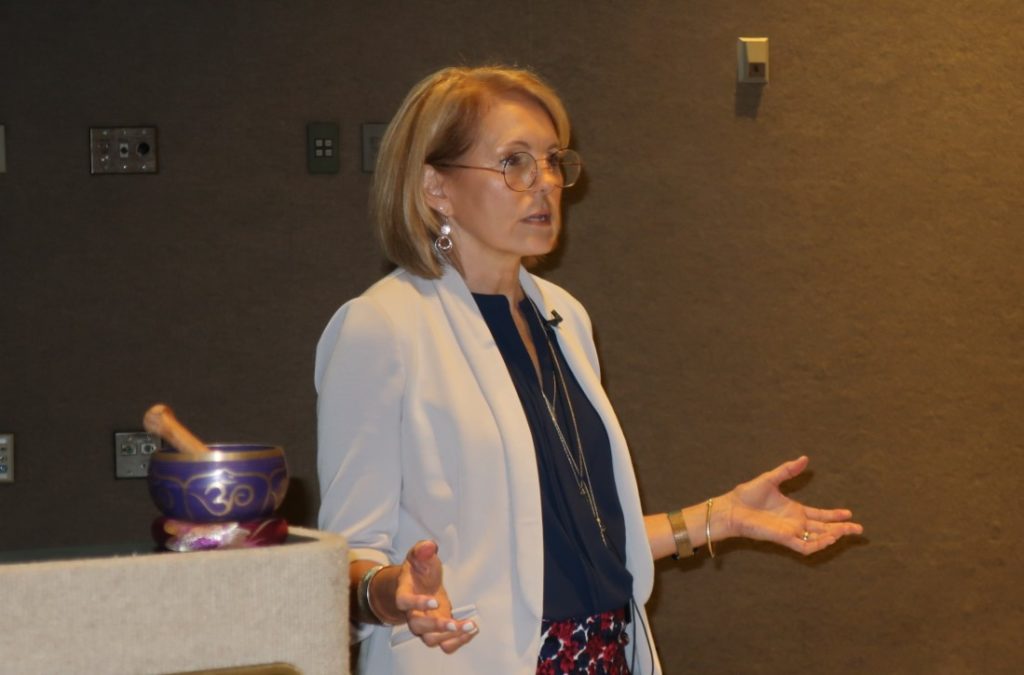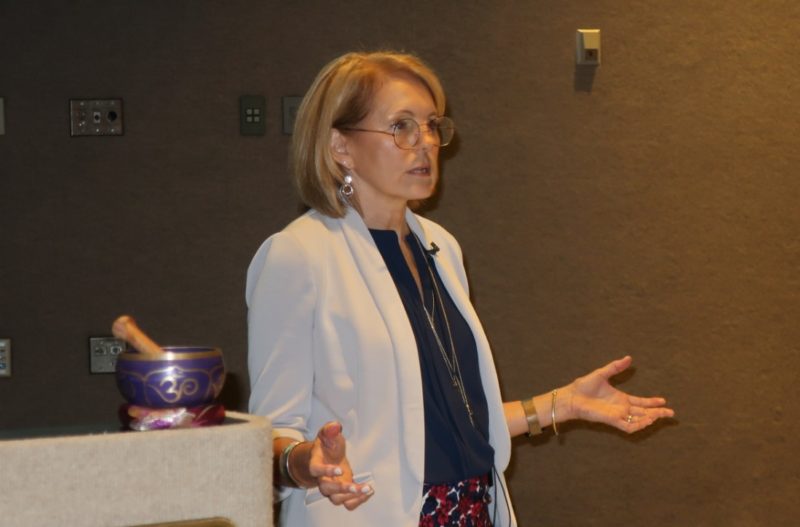Pre-assembly event explores Sacred Shifts
We are living in a new and changing world. We know this and yet it still creates challenges. So we keep talking about it in order to focus on opportunities to breathe new life into our churches in this new age.
In Thursday’s pre-assembly session, Peggy Hahn, Executive Director of LEAD, brought leaders fresh insight on making ‘Sacred Shifts’ in our communities and neighborhoods. Such sacred shifts are essential in a time where we are living between loving our tradition and our vision for the future, all while coming to understand changes in this time and place. Christian leadership shifts include shifting our hearts, shifting our leadership and metrics, and shifting our future.
As Peggy reminds us, this new world is not going away. It is here to stay and is ushering in a new era. We are now living in a Google world. A Netflix world. A Venmo world. An ethnically diverse world. A gender fluid world. An unaffiliated world. One where Google is replacing pastors as the “expert” on spiritual matters. One where 50% of Americans do not identify with any religious preference. Knowing this, Peggy encourages us to see this time as a window of opportunity to reimagine our call to do God’s work in Christ’s name for the life of the world. The window is narrow and change is constant and unstoppable, so the time for action is now.
The way we think about change is part of the sacred shift. Our job, as leaders, is to help shift our communities to a learner mindset which is responsive, thoughtful, appreciative, values not knowing, takes multiple perspectives, and is primarily characterized by curiosity. The shift starts with us. Peggy challenges us to get curious. Instead of thinking there’s only one way to do something, let’s explore other ways.
One of the most important ways to make sacred shifts is by making adaptive change. Peggy explains adaptive change as problem solving that requires learning and listening. Adaptive change takes time and committed effort. The work of adaptive change is to experiment. The way to do adaptive change is to observe, interpret, and intervene – over and over again. It’s an ongoing dance of pushing each other to learn about what’s going on in our neighborhoods, to interpret why this is happening, and to experiment by testing out a potential solution. Adaptive change is risky behavior which requires courage to step out of our comfort zone and try something new, with the understanding that it may not always work. It’s about figuring out what our church can do that matters so much that the community wants to be part of it. This creates integrity and meaning in our ministry that people will want to talk about.
According to Peggy, shifting the metrics is a primary key to the future of being church. We’ve got to be about more than nickels and noses, she says. Unfortunately, many leaders are unclear when it comes to figuring out what and how to measure at church. LEAD’s book Faithful Metrics is a valuable resource that can help with this, and each pre-assembly participant received a copy. “As long as we’re focused on what we can’t do, we’ll never be able to see what we can do,” says Peggy. Thus, we must balance living in the lag metrics vs lead metrics, both of which matter and shift our focus differently. Visit waytolead.org for more information on Faithful Metrics.
Now is the time to get creative around things that matter to us. Now is the time to spark transformational ministry. Now is the time to cast the vision to where we might go. Be the kind of leader that’s willing to try something new. It can be something small. Most of the time, the best kind of change happens incrementally. So try adaptive leadership. Move your community to a learner mindset. Rethink your metrics. Without trying something, nothing will happen. Taking risks is the only way forward. So take a risk and make a sacred shift. For the sake of the church and the world.
Story: Carissa Abraham serves as Director of Faith Formation & Engagement Ministries at her home church of St. Mark’s in Mooresville.
Picture: Catherine Fink is Director of Communications & Resources for the NC Synod.




